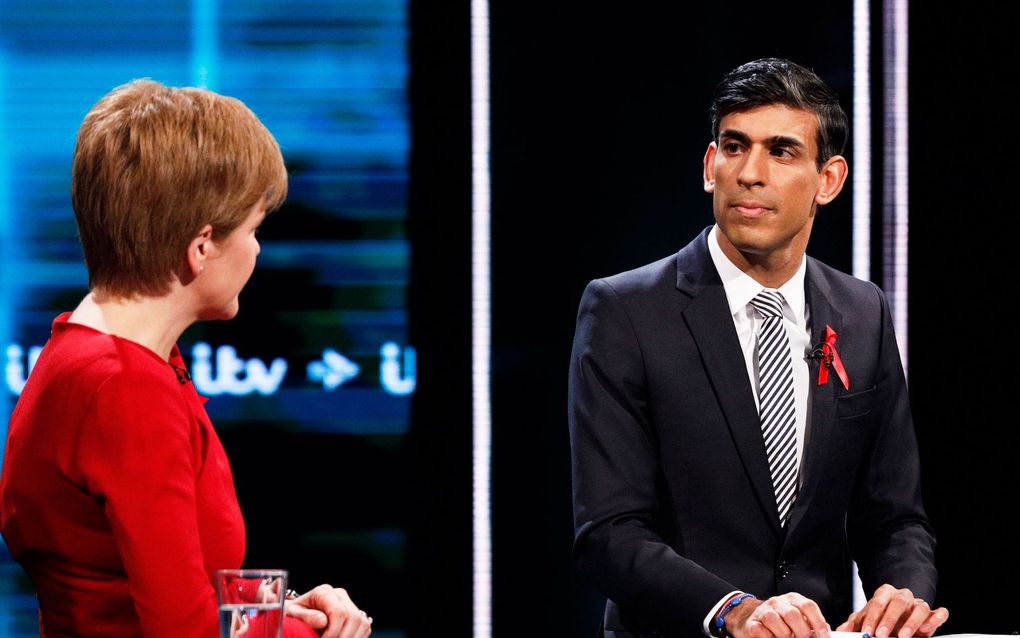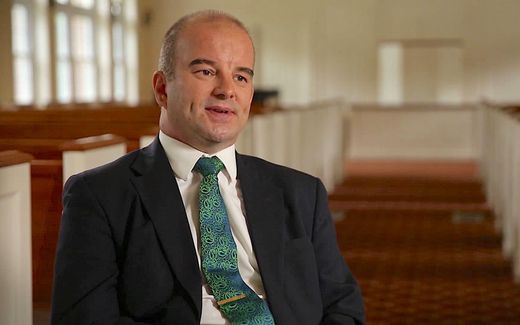By blocking the Scottish trans bill, London is doing the opposite of most of Europe

The British Prime Minister Rishi Sunak (right) has come in direct confrontation with the Scottish First Minister Nicola Sturgeon (left). He blocks the Scottish transgender bill. Photo EPA, Matt Frost
European Union
The British government has done the opposite of what many other European countries are doing: blocking an easy gender change registration. With that, London is trying to reverse the trend.
Transgender registration is a European-wide phenomenon. In all countries, LGBT communities and equality movements are asking the government to make it easier for people to get a new gender registration.
Because of this, bills to make it easier to change birth certificates are on the table in many capitals. The parliament of Spain passed a transgender law last month. Minors from 16 years can change their gender without the consent of a third party; children from 12 can apply for that with the help of others.
Norway did already so in 2016. Children from 6 to 16 years need their parents’ help. From the age of 16 years, the matter is free. Also Switzerland did that.
Other countries in Western Europe are still seeking their way. Germany’s so-called Traffic Light coalition has very progressive plans in terms of family and gender. But the Bundestag has not yet voted on a transgender bill. In the north, Sweden is still determining whether the age must be 12 or better 16.
The Dutch Lower House started to debate the trans bill last autumn but has not finished that. The large coalition parties seem to doubt whether a too-easy change is the right thing to do.
Disturb
The British government enriched the European variety by blocking a decision taken by the Scottish parliament in December. London is afraid that this bill would disturb the all-UK Equality Laws.
The Scottish Gender Recognition Bill lowers the age of a gender change from 18 to 16, as the BBC sums up. It would also remove the need for a medical diagnosis of gender dysphoria and the condition that applicants must have lived under the new gender for two years.
Trans campaigners welcomed the bill. People against fear unforeseen impact on women’s rights and access to single-sex spaces like changing rooms.
When the United Kingdom developed the devolution with Scotland –in the late nineties–the authorities introduced a rule that would make it possible to block decisions by the Scottish parliament. London never used this before. The government could have done that when Scotland introduced same-sex marriage in 2014. But instead, the Cameron government in London took this as an opportunity to do the same for England and Wales as well (Northern Ireland was exempted from that).
Opposite
In fact, Prime Minister Sunak is doing the opposite of what other governments are doing. On the European continent, the trend is to lower the age of gender change by at least 16 and pave the way to 12.
In Britain, the government and the Labour opposition say that 16 is “too young” for such a decision.
It is not clear what the consequences of Sunak’s step will be. Decisions like this are known as “the nuclear option”; you know which button you hit, but you can’t oversee what you set in motion. Much will depend on what the House of Commons thinks about it.
The Scottish government, led by the SNP nationalists, will no doubt use this incident in the campaign for Scottish independence. Scottish first minister Nicola Sturgeon already called the move a “full-frontal attack” on the Scottish parliament.
Others within the UK praised the decision. Darren Miller, a member of the Wales parliament, spoke on Twitter about the “right decision”.
Related Articles









